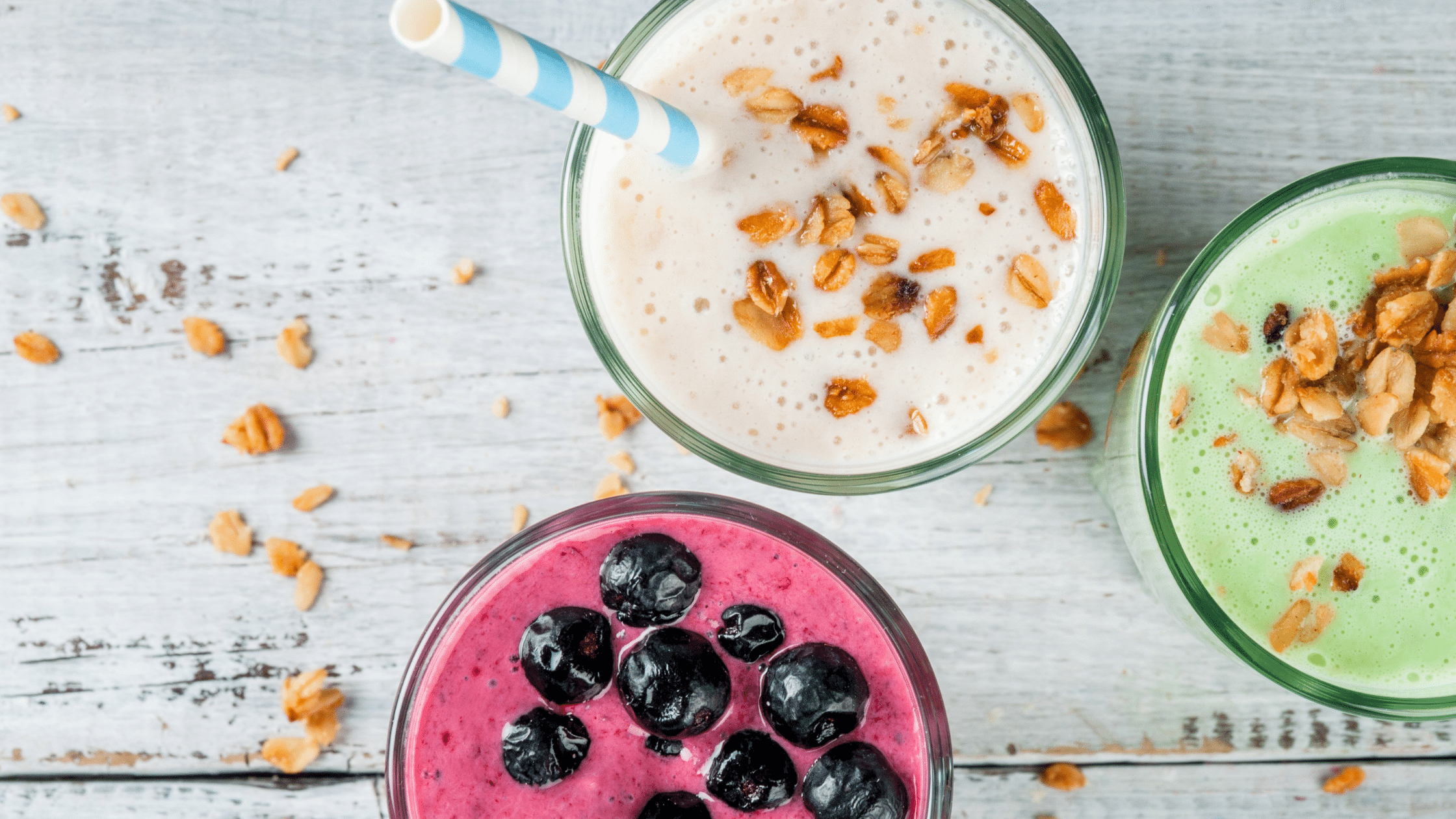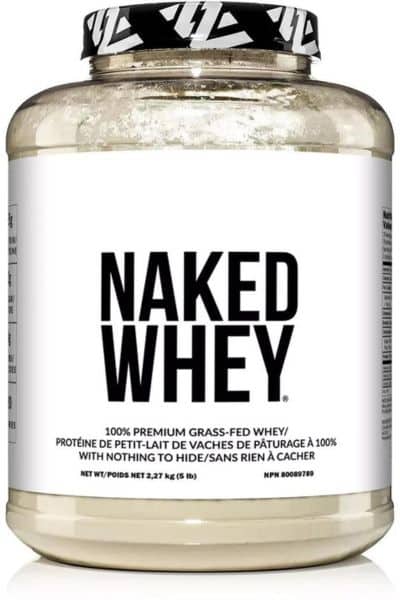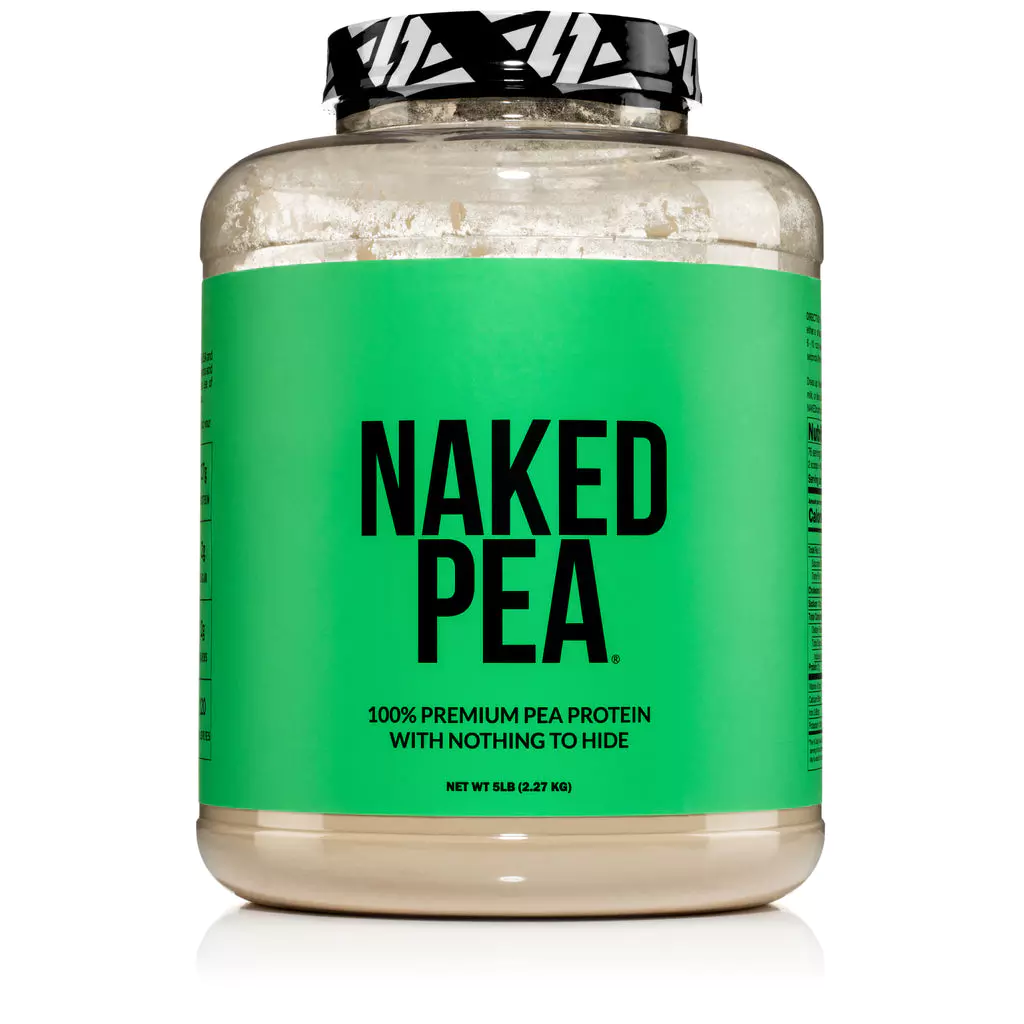
An expert guide to the best protein powder for pregnant women: My top 4 picks
Are you pregnant and wondering if your shakes are still safe? Our dietitian shares options for the best protein powder for pregnant women. This post contains Amazon affiliate links to some of my favourite products and is sponsored by Naked Nutrition.
I remember that pregnancy “glow.” And I remember the feeling of constant nausea, which would occasionally turn into more. As a dietitian, I know pregnancy is an important time to eat well and nourish yourself and your baby. As a mom of three, I also know that pregnancy can be the most challenging time to eat a healthy diet!
It can be easier to drink some meals vs eat solids for some pregnant women to quell their queasy tummy. Or maybe you feel great and wonder if it’s safe to keep drinking your regular protein shakes.
So in this blog, as a dietitian, I’ll share options for the best protein powder options, ingredients to avoid and homemade alternatives for a healthy pregnancy.
What are protein powders?
Protein powders are an isolated source of protein. Popular sources include dairy, soy, hemp or peas. These powders often have vitamins and minerals added. Often, other ingredients are added for flavour, thickening and sweetening the products.
When looking at a protein shake with a long list of ingredients, it can be hard to know what is a safe product while pregnant. Thankfully, as a dietitian and mom of three, I‘m here to help!
Why would you use protein shakes during pregnancy?
If you have nausea and vomiting during pregnancy, it might be hard to keep solid foods down; cold foods and liquids might be easier to consume. And protein can help nausea too, by keeping blood sugar levels even.
So mixing up a smoothie or shake might help you get the extra calories and nutrients needed while pregnant. Shakes or smoothies can also add to your fluid requirements. Especially important to stay hydrated if you have morning sickness.
Later in pregnancy, you need extra calories to support the baby’s growth. You need 340 extra calories per day in the second and 450 additional calories in the third trimester. Yet a growing baby pushes on your stomach, and it might be hard for you to eat a full meal. Adding in a liquid snack can help you meet your energy and nutrient needs.
It’s not just extra calories and protein that you’ll need later in pregnancy. You’ll also have to focus on getting in 1300mg calcium and 28g fibre 27mg iron, which smoothies/shakes can help with too.
Good calcium additions could include yogurt, milk or fortified milk alternatives. Iron sources include spinach, hemp hearts or cooked red lentils. The lentils and hemp hearts will also beef up iron amounts.
How much protein do you need during pregnancy?
During the first half of pregnancy, the minimum daily protein requirement is 46g or 0.8g protein /kg body weight. This is the same as when you’re not pregnant. Protein needs increase to at least 71 grams per day (or 1.1g/kg) in the second half of pregnancy.
Remember that more is not always better if you’re already meeting requirements. One study in over 91,000 Japanese women found when looking at fetal growth and mom’s protein intake that protein intake has an inverse U-curve relationship with fetal growth. Suggesting that the effect of protein on birth weight is non-linear and too much or too little was not good. A balanced diet fulfilling the minimum requirement for all macronutrients was best for the baby’s growth.
So it’s not recommended to increase just your protein intake while ignoring the other macronutrients: carbohydrates and fats. If you use shakes, I would suggest adding in some fat and carbs too, to make the shake more balanced. Fat sources could be nut butter, yogurt or milk, or hemp hearts. Easy carb sources to add can include dry oats and fruits or veggies.
And many women will not need to add a supplement to meet 71+ grams of protein per day if they include protein-rich foods in every meal. What does this look like? Grab your free 7-day prenatal meal plan here:
Ingredients to avoid in protein powder during pregnancy
So many shake mixes you can buy contain many ingredients beyond just protein. Like Shakeology (check out my review here). While some of these ingredients may be beneficial, most are not tested in pregnancy.
Here are a few added ingredients that you will want to look for in the ingredient list and probably avoid in shakes while pregnant:
1) Artificial Sweeteners
Cyclamates (like Sugar Twin or Sweet N Low) are unsafe in pregnancy. While others are safe, none have benefits.
2) Added Sugars
The American Heart Association recommends that women have a daily limit of 25 grams of sugar. Add your own sweetness, fibre, and antioxidants by avoiding a shake with added sugar and adding in fruit.
3) Soy
The isoflavones in soy can be estrogenic. And at high concentrations, soy may reduce ovarian synthesis of estrogens. No need to worry about soy in foods – just supplements.
4) Rice-based
There are so many options that I would avoid rice protein isolates. This is because of the rice’s potential for concentrated amounts of arsenic.
5) Herbs
You might find a long list of herbs in some protein powder mixes. These can mimic drugs – natural does not necessarily mean safe. Especially in pregnancy, when most herbs haven’t been tested for safety.
6) Added Retinyl
Retinyl forms of Vitamin A can be associated with birth defects, especially in the first trimester of pregnancy. While beta-carotene forms of vitamin A are not a risk, levels of preformed vitamin A (retinyl forms) above 10,000 IU should be avoided (this includes cod liver oil).
How to pick the best prenatal protein powder
When looking for a protein powder, you can avoid the ingredients above and look for a simple ingredient list. Some contain only the protein, without added sweeteners, artificial flavors or supplements, which is best.
You also want to ensure your choice is third-party tested to avoid contaminants like heavy metals. The last time I visited a supplement store, I asked which third-party products were tested. The owner said everything on Canadian shelves is – but we wary if you buy online. A Natural Health Product number assures Health Canada has assessed the product.
Here are my top picks for the best protein shakes for pregnancy:
1) Whey Protein Powder
Whey protein powder is one of the most popular protein supplements and is safe for pregnant women. Whey is from dairy and is a complete protein source containing all the essential amino acids the body requires. If you’re not allergic to dairy, it’s one of the best-absorbed protein sources.
However, choosing a high-quality whey powder that does not contain harmful additives or sweeteners is essential. Naked Whey contains just added vanilla and some coconut sugar (5g) in addition to whey. It has 25g of protein per serving from grass-fed cows and is free of additives and artificial sweeteners.
2) Collagen Protein Powder
Collagen protein powder is popular due to its claims to support healthy skin, hair, and nails. Collagen is easily digestible and blends easily into most fluids. I find it the easiest powder to use and like to mix it into my morning coffee (I use Aura’s collagen creamer, here’s my affiliate link).
Look for a high-quality collagen protein powder from grass-fed cows or wild-caught fish. It’s easy to find a collagen supplement with no added ingredients, and it blends easily and tastelessly into most foods and fluids.
Vital Protein is a popular brand (affiliate link). They sell both marine and bovine collagen.
3) Pea Protein Powder
Pea protein powder is another excellent option for pregnant women, especially for those with a dairy allergy or who want a vegan protein powder. It is a plant-based, easily digestible protein source. And unlike most plant-based proteins, pea contains all nine essential amino acids.
Pea protein powder is also rich in iron, which is essential during pregnancy as it helps produce red blood cells to support the growth of the mom’s blood supply and the baby.
But pea protein can have a more robust flavour, which could be harder to tolerate in pregnancy if you’re more sensitive than usual to strong flavours. But you should be able to mask the earthy flavour by mixing pea protein with fruit. But make sure the manufacturer hasn’t added a bunch of sweeteners to cover up the taste!
Naked Pea contains just one ingredient: yellow pea protein. It’s a good option if you’re looking for pea protein during pregnancy to boost protein consumption.
4) Hemp Protein Powder
Hemp protein powder is another good plant-based option for pregnant women. And hemp has the benefit of containing an extra nutrition boost from fibre, omega-3 fatty acids and iron – all very important for you and the building blocks of a growing baby!
Like other plant-based protein sources, hemp has a strong flavour that you may want to hide with the addition of other ingredients. Here’s an excellent option to try (affiliate link).
Homemade protein shake ingredients for pregnancy:
There are many ways to add protein to your smoothies, without using store-bought protein powders. Here are some options for protein from food sources that you probably already have in your kitchen, and the amount of protein they contain:
- Yogurt: 6g per half cup
- Cow’s milk: 9g per cup
- Oat Milk 4g per cup
- Skim milk powder: 8g per 1/3 cup
- Hemp hearts: 3g per 1 Tbsp
- Chia seeds: 2g per 1 Tbsp
- Red lentils: 3g per cooked 3 Tbsp
- Nut butter: 3g per 1 Tbsp
- Pasteurized egg whites (in the carton): 7g per ¼ cup
Conclusion: Best Protein Powder for Pregnant Women
Bottom line: protein powder is an easy way to fill nutrient gaps and boost nutrition in pregnancy. While most women won’t need them, they might be helpful if you suffer from a limited appetite or nausea and vomiting.
However, choosing a powder that is safe and free from harmful additives or fillers is essential for the healthy development of your baby. Add in your own high-protein ingredients, or look for a powder with simple ingredients.
And even if you can’t stomach that spaghetti your partner made you for supper without losing your cookies; you can still get in some nutrition. Keep up the good work growing that baby <3.
Before you go, remember to grab your free 7-day pregnancy meal plan here:
Founder of First Step Nutrition | Registered Dietitian Nutritionist
Jen believes raising happy, well-nourished eaters who have a healthy relationship with food doesn't have to be a battle! She is an author and speaker with 18 years of experience specializing in family nutrition and helps parents teach their kids to try new foods without yelling, tricking, or bribing.









Sorry, the comment form is closed at this time.